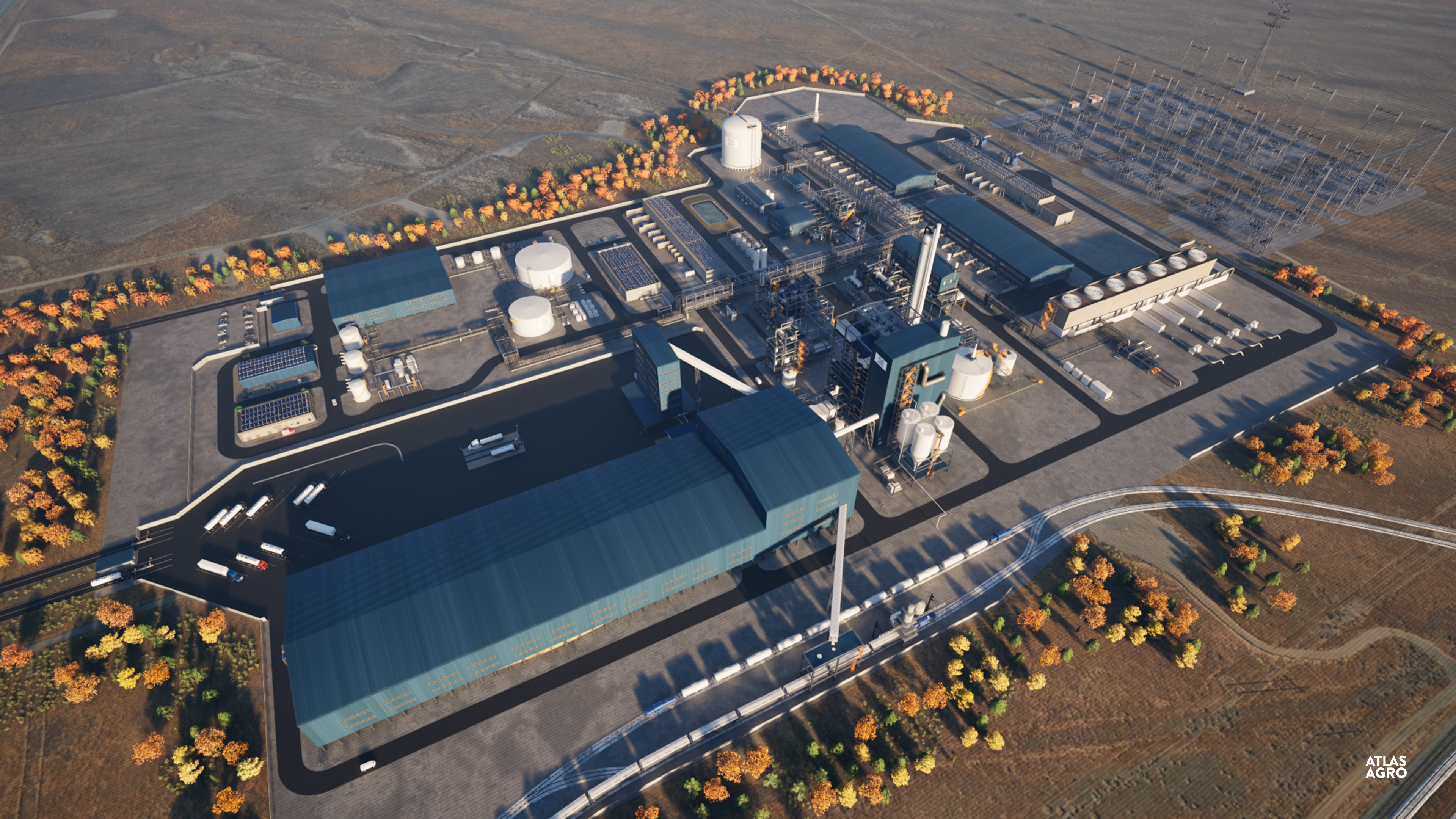
Home » $1.5B green fertilizer plant has distributor
$1.5B green fertilizer plant has distributor

A rendering of Atlas Agro's proposed Pacific Green Fertilizer facility in Richland.
Courtesy Atlas AgroNovember 14, 2024
The low-carbon nitrate fertilizer produced at a $1.5 billion plant that’s proposed in north Richland has a distributor.
The Pennsylvania-based International Raw Materials Ltd., or IRM, will handle marketing and retail distribution for all of the fertilizer made at Atlas Agro’s Pacific Green Fertilizer facility.
The financial terms of the deal – which was announced on Oct. 23 – weren’t disclosed. But leaders of both companies described it as an important step for a project that’s poised to make a major impact in the region through job creation and economic stimulus.
“Our partnership with IRM is a significant milestone in our progress to bring locally produced, green nitrogen fertilizer products to growers in the Pacific Northwest,” said Petter Østbø, CEO of the Switzerland-based Atlas Agro, in a statement. “IRM is a company renowned for its market knowledge and logistics capabilities with deep roots in the Pacific Northwest, and a commitment to bringing sustainable solutions to the agriculture supply chain.”
Tip O’Neill, president of IRM, added that including Atlas Agro’s fertilizer products in his company’s portfolio aligns with IRM’s commitment to agricultural sustainability.
“We’re seeing increased demand for a variety of solutions across the supply chain as food companies respond to the needs of consumers and look for new tools to address their Scope 3 emissions,” O’Neill said in the statement.
Scope 3 emissions are indirect greenhouse gas emissions.
The Pacific Green Fertilizer plant isn’t a done deal yet, although it’s approaching that point. Atlas Agro has completed a front-end engineering design study, and the project has passed state and federal environmental reviews, the statement said.
The final investment decision is expected early next year.
The plant, on 130 acres in the Northwest Advanced Clean Energy Park near Pacific Northwest National Laboratory, will make liquid and solid green nitrogen fertilizers, with the capacity to produce 700,000 tons a year, according to Atlas Agro.
The fertilizers will “provide higher yield, higher crop quality and less acidification of soil when compared to traditional fossil nitrogen fertilizers ... and reduce the emissions by several tons of carbon equivalent per ton of product,” the company said.
It describes low-carbon fertilizer products as “essential to sustainable food production” and to “addressing climate change through greenhouse gas emissions reductions.”
The Pacific Green Fertilizer plant will be the first of its kind in the world, Atlas Agro said. A virtual tour is available online.
The plant will make fertilizer using air, water, carbon-free electricity and limestone or dolomite as the raw materials, Atlas Agro has said. Construction is expected to take 36 months, the company has said.
Latest News Local News Agriculture Environment Manufacturing
KEYWORDS November 2024
Related Articles
Related Products





